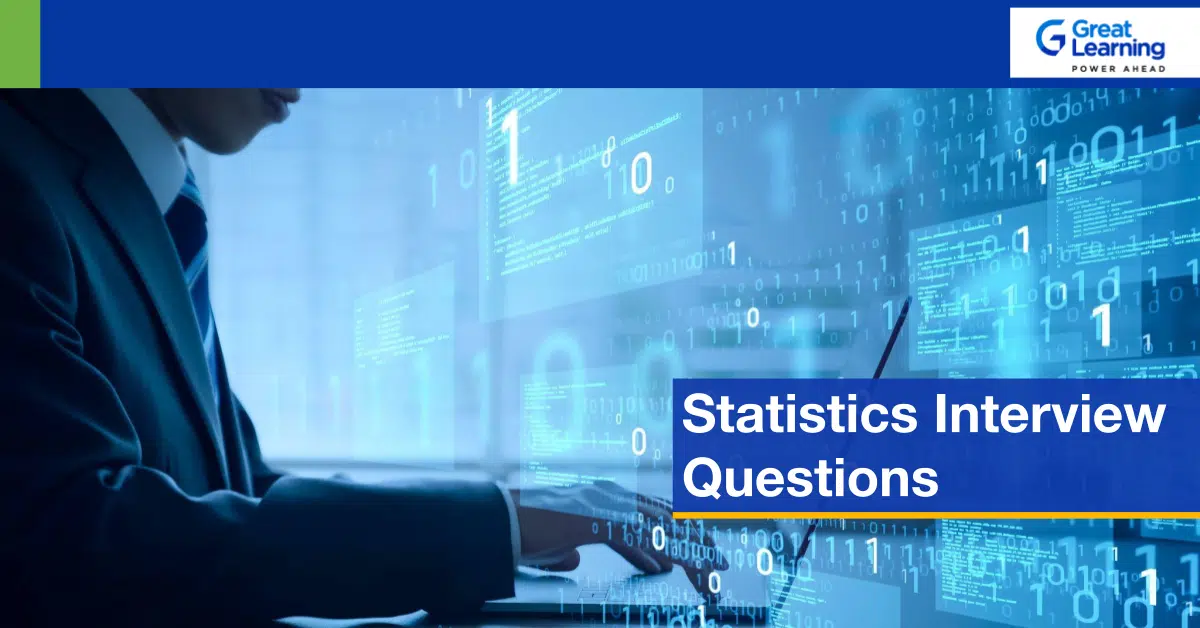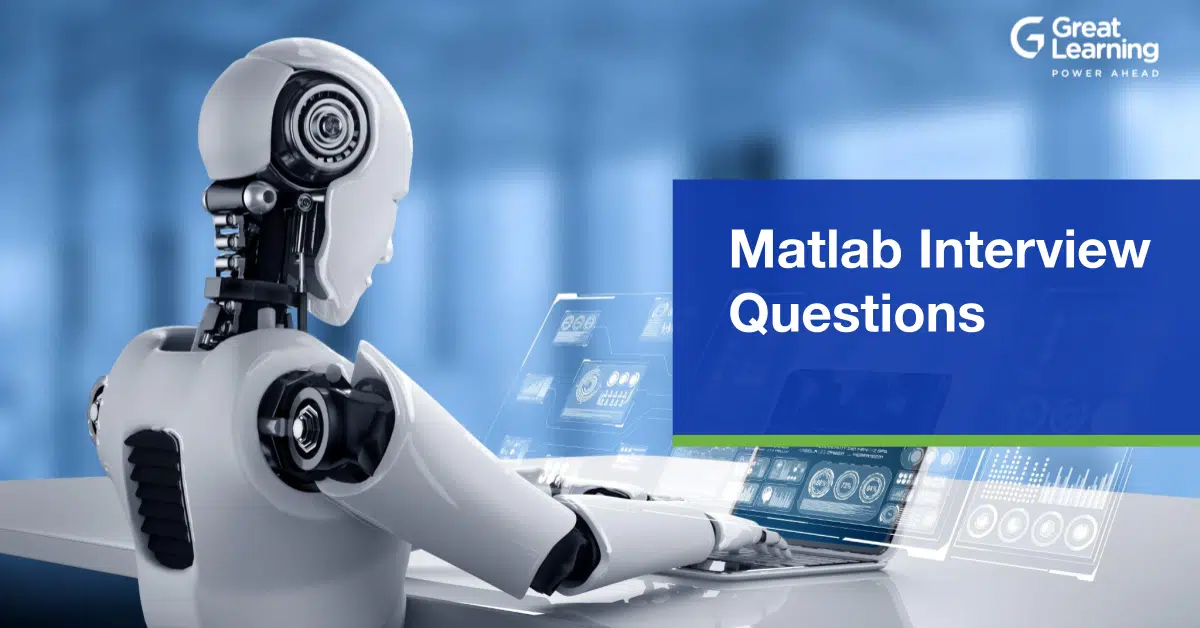Learn more about the course
Get details on syllabus, projects, tools, and more
This program is not available in your region, please visit this webpage for details of a similar program.
Continue to check out similar courses available to you
EXPLORE COURSES
Master of Data Science (Global) Program
Master Data Science for impactful career growth
Application closes 19th Jan 2026
What's new in this Master's in Data Science?
-

Advanced Modules on ChatGPT & Generative AI
Discover cutting-edge ChatGPT and Generative AI modules to revolutionize Data Science. Learn to streamline workflows, extract insights, and tackle complex business problems.
-

AI & Business Analytics Modules
Explore a curriculum that combines Data Science and AI. Gain insights into business analytics and consulting while learning to solve problems using business frameworks.
Program Outcomes
Elevate your career with advanced Data Science & AI skills
Become a Data Scientist with advanced Data Science & AI skills
-
Develop a deep understanding of the Data Science and AI landscape
-
Master essential tools like Python to solve real-world business problems
-
Master Data Science, Deep Learning, Analytics, and GenAI to drive strategic decisions
-
Secure your dream career in Data Science with our dedicated career support
Earn a master's degree from Deakin University
Key program highlights
Why choose the Master of Data Science (Global) program
-

A global masters degree & PG certificates
Gain the recognition of a global masters degree and PG certificates from global universities at just 1/10th the cost of a 2 year on-campus masters
-

Practical, hands-on learning from world-class faculty
Live virtual classes, Industry sessions and competency courses delivered by experts and faculty at Deakin
-

Industry-ready curriculum
Curriculum designed in a modular structure with foundational and advanced competency track
-

Dedicated career support
Get expert guidance to prepare for job roles with mock interviews, resume building, and e-portfolio review
-

11 hands-on projects & 22+ tools
The program includes 11 hands-on projects, 1 capstone project, 60+ case studies, and 22+ tools to strengthen practical and conceptual knowledge.
-

On-campus graduation ceremony in Australia
Opportunity to attend a graduation ceremony (optional) at the Deakin University campus in Melbourne.
-

Connect with your alumni community
Join the alumni portal with over 300,000 Deakin graduates, reconnect, and meet with fellow alumni across the globe.
-

Deakin credentials and alumni benefits
Enrolled students receive Deakin email IDs and, as alumni, are eligible for a 10% discount per unit on enrolment fees for any postgraduate award course at Deakin.*
*Terms and Conditions apply
Skills you will learn
Machine Learning
SQL
Predictive Modeling
Python
Natural Language Processing (NLP)
Data Visualization using Tableau
Neural Networks & Computer Vision
Data Analysis
Deep Learning
Generative AI
Prompt Engineering
Model Deployment
Hugging face
Supervised Learning
Unsupervised Learning
Machine Learning
SQL
Predictive Modeling
Python
Natural Language Processing (NLP)
Data Visualization using Tableau
Neural Networks & Computer Vision
Data Analysis
Deep Learning
Generative AI
Prompt Engineering
Model Deployment
Hugging face
Supervised Learning
Unsupervised Learning
view more
Secure top Data Science jobs
-
11.5 million
jobs in India by 2026
-
$303 billion
market growth by 2030
-
4 out of 5
companies use Data Science
-
Up to 23 lakhs
avg annual salary
Careers in Data Science
Here are the ideal job roles in Data Science sought after by companies in India
-
Data Scientist
-
Machine Learning Engineer
-
Business Analyst
-
Data Architect / Data Warehouse Architect
-
AI Architect
-
Analytics Manager
-
Data Analyst
-
Big Data Engineer
-
Business Intelligence Analyst
Our alumni work at top companies
- Overview
- Career Transitions
- Learning Path
- Curriculum
- Projects
- Tools
- Certificate
- Faculty
- Career support
- Fees
- FAQ

This program is ideal for
The Master of Data Science (Global) program from Deakin University empowers you to align your learning with your professional aspirations
-
Young professionals & new graduates
Build a foundation in Data Science with Python, Tableau, and Machine Learning. Gain real-world experience to kickstart your Data Science career.
-
Mid-senior professionals
Boost your analytics skills with AI, Deep Learning, and Business Analytics to advance into strategic roles in the field of Data Science.
-
Non-tech professionals
Break into the world of Data Science with beginner-friendly modules and hands-on learning. Acquire the skills to transform data into actionable insights and seamlessly switch to a data-driven career.
-
Tech Leaders
Lead AI innovation with strategic insights, advanced AI & ML skills, and the ability to drive business transformation.
Learning Path
With credentials from globally recognised universities, graduates of Deakin’s Master of Data Science (Global) program are strong contenders for high-impact roles in the data science industry.
-
Earn PG certificates from world's leading institutions
Learners will join the Post Graduate Program by The University of Texas at Austin and receive the PG Certificates upon program completion.
-
Join the 12-month Deakin University program
Post completion of the PG Program from The University of Texas at Austin , candidates will continue their learning journey with the 12-month online Master of Data Science (Global) from Deakin University.
-
Earn a Master's Degree from Deakin University
Once you complete the program successfully, you will receive the Master of Data Science (Global) Degree from Deakin University.

Curriculum
Data Science Pathway
PGP-DSGA CURRICULUM
The curriculum, designed by the faculty of Texas McCombs, Great Learning, and leading industry practitioners, is taught by the best-in-class professors and practising industry experts. The objective of the program is to familiarize learners with the concepts of Data Science and Generative AI necessary to establish their career or transition to a career in the field of Data Science.
Python & GenAI Pre-work
In this week, learners will build a foundation in core Data Science and Generative AI
concepts, develop Python skills for data manipulation and analysis, and explore
practical applications of Generative AI. The week concludes with a hands-on case
study applying Data Science to solve a real-world business problem.
- Introduction to Data Science
- Introduction to Generative AI
- Python Programming Essentials
Course 1 | Data-Driven Insights Using Python
This course teaches you how to read, explore, manipulate, and visualize data to tell stories, solve business problems, and deliver actionable insights and business recommendations by performing exploratory data analysis using some of the most widely used Python packages.
Python Fundamentals for Working with Data
- Variables and Data Types
- Data Structures
- Conditional and Looping Statements
- Functions
Data Manipulation Using NumPy and Pandas
- NumPy Arrays and Functions
- Accessing and Modifying NumPy Arrays
- Saving and Loading NumPy Arrays
- Pandas Series (Creating, Accessing, and Modifying Series)
- Pandas Dataframes (Creating, Accessing, Modifying, and Combining Dataframes)
- Pandas Functions
- Saving and Loading Datasets Using Pandas
Exploratory Data Analysis for Extracting Insights
- Data Overview
- Univariate Analysis (Histogram, Boxplots, and Bar Graphs)
- Bivariate/Multivariate Analysis (Line Plot, Scatterplot, Lmplot, Jointplot, Violin Plot, Striplot, Swarmplot, Catplot, Pairplot, Heatmap)
- Customizing Plots
- Missing Value Treatment
- Outlier Detection and Treatment
Course 2 | Generative Al for Text Analysis
In this course, you will build practical expertise in Generative Al by mastering Prompt Engineering and Large Language Model workflows. The course covers prompt design, text classification, summarization, and the application of LLMS to solve real-world business problems.
Introduction to Prompt Engineering
- Introduction to Prompts
- The Need for Prompt Engineering
- Different Types of Prompts (Conditional, Few-Shot, Chain-of-Thought, Returning Structured Output)
- Limitations of Prompt Engineering
Text Analysis with LLMs
- Introduction to Text-to-Label Generation
- Data Preparation Process
- Introduction to Text-to-Text Generation
- Structure of Text Generation Tasks
Course 3 | Decision Making with Business Statistics
This course teaches you how to perform statistical analysis using Python to evaluate the reliability of a particular business estimate using confidence intervals and test hypotheses (assumptions) before putting them into action and committing resources by analyzing data distributions and performing hypothesis testing.
Inferential Statistics Foundations
- Experiments, Events, and Definition of Probability
- Introduction to Inferential Statistics
- Introduction to Probability Distributions (Random Variable, Discrete and Continuous Random Variables, Probability Distributions)
- Binomial Distribution
- Normal Distribution
Data Sampling and Inference for Accurate Insights
- Sampling
- Central Limit Theorem
- Estimation
- Introduction to Hypothesis Testing
- Hypothesis Formulation and Performing a Hypothesis Test
- One-tailed and Two-tailed Tests
- Confidence Intervals and Hypothesis Testing
Common Statistical Tests for Informed Decisions
- Test for One Mean
- Test for Equality of Means
- Chi-square Test of Independence
- One-way ANOVA
Course 4 | Predictive Analysis with Linear Regression
This course helps you explore linear models to capture the relationships between variables and a known continuous outcome, check the statistical validity of the models, and draw statistical inferences to gain business insights into key factors that influence business decision-making.
Introduction to Modeling Linear Regression
- Introduction to Learning from Data
- Simple and Multiple Linear Regression
- Evaluating a Regression Model
- Pros and Cons of Linear Regression
Statistical Inferences from Linear Regression
- Statistician vs ML Practitioner
- Linear Regression Assumptions
- Statistical Inferences from a Linear Regression Model
Course 5 | Classification Techniques for Predictive Analysis
In this course, you will explore classification models to capture the relationships between variables and a known categorical outcome, and gain business insights by identifying the key factors that influence decision-making.
Logistic Regression for Probability-Based Insights
- Introduction to Logistic Regression
- Interpretation from a Logistic Regression Model
- Changing the Threshold of a Logistic Regression Model
- Evaluation of a Classification Model, Pros and Cons
Decision Tree for Transparent Decision Making
- Introduction to Decision Tree
- Different Impurity Measures
- Splitting Criteria in a Decision Tree
- Methods of Pruning a Decision Tree
- Regression Trees, Pros and Cons
Course 6 | Robust Data Modeling with Ensembling and Tuning Techniques
In this course, you will learn how to combine the decisions from multiple models using ensemble techniques to improve model performance and make better predictions, and employ feature engineering techniques and hyperparameter tuning to arrive at generalized, robust models to optimize associated business costs.
Bagging Ensemble for Improved Predictive Performance
- Introduction to Ensemble Techniques
- Introduction to Bagging, Sampling with Replacement
- Introduction to Random Forest
Boosting Ensemble for Improved Predictive Performance
- Introduction to Boosting
- Boosting Algorithms (Adaboost, Gradient Boost, XGBoost)
- Stacking
Tuning and Validation Techniques for Optimized Model Performance
- Feature Engineering
- Cross-validation
- Oversampling and Undersampling
- Model Tuning and Performance
- Hyperparameter Tuning
- Grid Search
- Random Search
- Regularization
Course 7 | Pattern Discovery with Unsupervised Learning
In this course, you will learn to use clustering algorithms to group data points based on their similarity, find hidden patterns or intrinsic structures in the data, and understand the importance of dimensionality reduction and how to perform it.
Insightful Data Segmentation with K-Means Clustering
- Introduction to Clustering
- Types of Clustering
- K-means Clustering
- Importance of Scaling
- Silhouette Score
- Visual Analysis of Clustering
Discovering Patterns with Hierarchical Clustering and PCA
- Hierarchical Clustering
- Cophenetic Correlation
- Introduction to Dimensionality Reduction
- Principal Component Analysis
Course 8 | Data Querying and Analytics with SQL
This course will help you gain an understanding of the core concepts of databases and SQL, gain practical experience writing simple SQL queries to filter, manipulate, and retrieve data from relational databases, and utilize complex SQL queries with joins, window functions, and subqueries for data extraction and manipulation to solve real-world data problems and extract actionable business insights.
Data Retrieval and Aggregation Essentials
- Introduction to Databases and SQL
- Fetching Data
- Filtering Data
- Aggregating Data
Querying Techniques for Relational Data Analysis
- In-built Functions (Numeric, Datetime, Strings)
- Joins
- Window Functions
Advanced Querying for Enhanced Proficiency and Insights
- Subqueries
- Order of Query Execution
Course 9 | Data Visualization Using Tableau
In this course, you will learn how to read, explore, and effectively visualize data using Tableau and tell stories by analyzing data using Tableau dashboards.
Storytelling with Data
- Dimensions Measures
- Data Types
- Calculations and Filtering
- Different Visualizations
Creating Interactive Dashboards
- Parameters
- Level of Detail Calculation
- Sets and Blends
- Creating Interactive Dashboards
- Storyboarding
Course 10 | NEURAL NETWORKS AND COMPUTER VISION
This course helps you implement neural networks to synthesize knowledge from data, introduce you to the world of computer vision, demonstrate an understanding of image processing and different methods to extract informative features from images, build convolutional neural networks (CNNs) to unearth hidden patterns in image data, and leverage common CNN architectures to solve image classification problems.
Introduction to Neural Networks
- Deep Learning and History
- Multi-layer Perceptron
- Types of Activation Functions
- Training a Neural Network
- Backpropagation
Image Processing
- Overview of Computer Vision
- Color Pixel and Image Representation
- Edge Detection
- Kernels
- Padding
- Strides, and Pooling
- Flattening to a 1D Array
Convolutional Neural Networks
- ANN Vs CNN
- CNN Architecture
- Introduction to Transfer Learning
- Common CNN Architectures
Course 11 | NATURAL LANGUAGE PROCESSING WITH GENERATIVE AI
This course will introduce you to the world of Natural Language Processing (NLP), help you gain a practical understanding of text embedding methods and the workings of various transformer architectures that form the foundation of Large Language Models (LLMs). You will explore how Retrieval-Augmented Generation (RAG) integrates information retrieval to enhance the accuracy and relevance of LLM responses, and learn to design and implement robust NLP solutions using open-source LLMs combined with Prompt Engineering techniques.
Introduction to Natural Language Processing
- Overview of NLP
- History of NLP
- Different Applications of NLP
- Text Cleaning
- Text Vectorization
- Sentiment Analysis
Word Embeddings
- Introduction to word embeddings
- Word2Vec
- CBOW and Skip-gram
- Negative Sampling
- Glove
- Applications of Word Embeddings
Attention Mechanism and Transformers
- Introduction to Transformers
- Components of a Transformer
- Different Transformer Architectures
- Applications of Transformers
Large Language Models and Retrieval Augmented Generation
- Introduction to LLMs
- Working of LLMs
- Applications of LLMs
- Introduction to Embeddings and Tokenization
- Byte-Pair Encoding (BPE) Tokenization
- Computation and Application of Sentence Embeddings
- Retrieval-Augmented Generation (RAG)
Business Analytics SELF-PACED MODULES
MARKETING AND RETAIL ANALYTICS
This course will help you understand the role of predictive modeling in influencing customer behavior and how businesses leverage analytics in marketing and retail applications to make data-driven decisions.
- RFM Analysis
- Cluster Analysis
- Market Basket Analysis
- Customer Lifetime Value (CLV) Model
FINANCIAL AND RISK ANALYTICS
This course will help you develop a deep appreciation of credit and market risk and understand how banks and other financial institutions use predictive analytics for modeling their risk.
- Credit Risk Modelling
- PD Model - Altzman's and Discriminant Function
- Market Risk Optimization
WEB AND SOCIAL MEDIA ANALYTICS
This course will help you understand and appreciate the most widely used tools of web analytics which form the basis for rational and sound online business decisions, and learn how to analyze social media data, including posts, content, and marketing campaigns, to create effective online marketing strategies.
- Google Trends and Analysis
- Google Ads
- Google Analytics
- Social Media Analytics
- Text Mining and Sentiment Analysis
SUPPLY CHAIN AND LOGISTICS ANALYTICS
This course will expose you to the discipline of supply chain management and its stakeholders, understand the role of logistics in businesses and supply chains, and learn methods of forecasting prices, demand, and indexes.
- Forecasting Models
- Monte Carlo Simulation
- Supply Chain Network Optimization
- Supply Chain Management Strategy
AIML Pathway
PGP-AIML CURRICULUM
The curriculum of the PGP in Artificial Intelligence & Machine Learning has been updated in consultation with industry experts, academicians & program alums to ensure you learn the most cutting-edge topics:
Python and GenAI Prep Work
Python Bootcamp for Non-programmers
Python Prep Work
Generative AI Prep Work
Course 2: Machine Learning
Linear Regression
Decision Trees
K-Means Clustering
Course 1: Introduction to Python
Python Programming
Python for Data Science
Exploratory Data Analysis (EDA)
Analyzing Text Data
Course 3: Advanced Machine Learning
Bagging
Boosting
Model Tuning
Course 5: Natural Language Processing with Generative AI
Word Embeddings
Attention Mechanism and Transformers
Large Language Models and Prompt Engineering
Retrieval Augmented Generation
Course 4: Introduction to Neural Networks
Introduction to Neural Networks
Optimising Neural Networks
Course 6: Introduction to Computer Vision
Image Processing
Convolutional Neural Networks
Course 7: Model Deployment
Introduction to Model Deployment
Containerisation
Course 8: Introduction to SQL
Querying Data With SQL
Advanced Querying
Enhancing Query Proficiency
Course 9:Applied Statistics
Inferential Statistics Foundations
Estimation and Hypothesis Testing
Common Statistical Tests
Course 10: Advanced Machine Learning and MLOPS
Model Interpretability
Introduction to MLOps and DevOps
Building ML Pipelines
Course 11:Advanced Generative AI for Natural Language Processing
AI Assistant Development
Fine-tuning LLMS
Course 12:Capstone
Additional Modules (Learn at your own Pace)
Course 1: Introduction to Data Science and AI Course 2: Multimodal Generative AI
Course 3: Recommendation Systems
Course 4: Object Detection and Segmentation
Course 5: Reinforcement Learning
Course 6: Time Series Forecasting
Second Year: Masters of Data Science (Global)
TRIMESTER 1
ENGINEERING AI SOLUTIONS
LEARNING OUTCOMES OF THIS UNIT:
Explain the process and key characteristics of developing an AI solution, and the contrast with traditional software development, to inform a range of stakeholders
Design, develop, deploy, and maintain AI solutions utilising modern tools, frameworks, and libraries
Apply engineering principles and scientific method with appropriate rigour in conducting experiments as part of the AI solution development process
Manage expectations and advise stakeholders on the process of operationalising AI solutions from concept inception to deployment and ongoing product maintenance and evolution
MATHEMATICS FOR ARTIFICIAL INTELLIGENCE
LEARNING OUTCOMES OF THIS UNIT:
Explain the role and application of mathematical concepts accociated with artificial intelligence
Identify and summarise mathematical concepts and technique covered in the unit needed to solve mathematical problems from artificial intelligence applications
Verify and critically evaluate results obtained and communicate results to a range of audiences
Read and interpret mathematical notation and communicate the problem-solving approach used
TRIMESTER 2
MACHINE LEARNING
LEARNING OUTCOMES OF THIS UNIT:
Use Python for writing appropriate codes to solve a given problem
Apply suitable clustering/dimensionality reduction techniques to perform unsupervised learning on unlabelled data in a real-world scenario
Apply linear and logistic regression/classification and use model appraisal techniques to evaluate develop models
Use the concept of KNN (k-nearest neighbourhood) and SVM (support vector machine) to analyse and develop classification models for solving real-world problems
Apply decision tree and random forest models to demonstrate multi-class classification models
Implement model selection and compute relevant evaluation measure for a given problem
MODERN DATA SCIENCE
LEARNING OUTCOMES OF THIS UNIT:
Develop knowledge of and discuss new and emerging fields in data science
Describe advanced constituents and underlying theoretical foundation of data science
Evaluate modern data analytics and its implication in real-world applications
Use appropriate platform to collect and process relatively large datasets
Collect, model and conduct inferential as well predictive tasks from data
TRIMESTER 3
REAL-WORLD ANALYTICS
LEARNING OUTCOMES OF THIS UNIT:
Apply knowledge of multivariate functions data transformations and
data distributions to summarise data sets
Analyse datasets by interpreting summary statistics, model and function parameters
Apply game theory, and linear programming skills and models, to make optimal decisions
Develop software codes to solve computational problems for real world analytics
Demonstrate professional ethics and responsibility for working with real world data
DATA WRANGLING
LEARNING OUTCOMES OF THIS UNIT:
Undertake data wrangling tasks by using appropriate programming and scripting languages to extract, clean, consolidate, and store data of different data types from a range of data sources
Research data discovery and extraction methods and tools and apply resulting learning to handle extracting data based on project needs
Design, implement, and explain the data model needed to achieve project goals, and the
processes that can be used to convert data from data sources to both technical and
non-technical audiences
Use both statistical and machine learning techniques to perform exploratory analysis on
data extracted, and communicate results to technical and non-technical audiences
Apply and reflect on techniques for maintaining data privacy and exercising ethics in data handling
Work on 11 hands-on projects
Dive into Data Science, AI and Machine Learning projects to sharpen skills and build a unique portfolio
-
11
hands-on projects
-
60+
case studies
-
22+
domains
Master in-demand Data Science and AI tools
Gain hands-on experience with 22+ top Data Science & AI tools to optimize models and build innovative solutions
Meet your faculty
Meet our expert faculty with in-depth Data Science & AI knowledge and a passion to help you succeed
Get industry ready with dedicated career support*
*Note: Provided by Great Learning
-
Resume Building Sessions
Build your resume to highlight your skill-set along with your previous academic and professional experience.
-
Access to curated jobs
Access a list of jobs relevant to your experience and domain.
-
Interview preparation
Learn to crack technical interviews with our interview preparation sessions.
-
Career Guidance
Get access to career mentoring from industry experts. Benefit from their guidance on how to build a rewarding career.
Course fees
The course fee is USD 8,500
Invest in your career
-

Develop a deep understanding of the Data Science landscape
-

Master essential tools like Python to solve real-world business problems
-

Master Data Science, Deep Learning, Analytics, and GenAI to drive strategic decisions
-

Secure your dream career in Data Science with our dedicated career support
Third Party Credit Facilitators
Check out different payment options with third party credit facility providers
*Subject to third party credit facility provider approval based on applicable regions & eligibility
Admission Process
Admissions close once the required number of participants enroll. Apply early to secure your spot
-

1. Apply
Fill out an online application form
-

2. Get Reviewed
Go through a screening call with the Admission Director’s office.
-

3. Join the program
Your profile will be shared with the Program Director for final selection
Course Eligibility
- Applicant must meet Deakin’s minimum English Language requirement.
- Candidates should have a bachelors degree (minimum 3-year degree program) in a related discipline OR a bachelors degree in any discipline with at least 2 years of work experience
Batch start date
-
Online · To be announced
Admissions Open
Frequently asked questions
What is unique about the Deakin University Master of Data Science (Global) program?
The Master of Data Science (Global) from Deakin University is a 12+12-month online data science degree. This program is split into two parts: foundational and advanced stages. This structure ensures learners gain both practical and in-depth mastery of data science concepts and tools. Key features that set the program apart include:
Expert-Led Learning: Live online lectures delivered by Deakin’s esteemed faculty, complemented by sessions from experienced industry professionals.
Hands-on Experience: Weekly mentorship and real-world projects that reinforce practical skills and application.
Career Advancement Support: Provides robust career enhancement support, including workshops, personalized career guidance, and exclusive access to the GL Excelerate jobs portal.
Dedicated Program Assistance: Ongoing academic and career support through Great Learning enhances the overall experience and outcomes for students.
This program is a top choice for those who want to work in AI, machine learning, and data science. It offers academic excellence, industry connections, and support for building a career.
What is the Master of Data Science (Global) Program from Deakin University?
The Master of Data Science (Global) is a 12+12-month online program designed with a modular structure by unbundling the curriculum into foundational and advanced competency tracks, which enable learners to master advanced Data Science skill sets effectively.
The program is designed to equip students with the industry-relevant skills and knowledge required to pursue their careers in the cutting-edge fields of Data Science, Business Analytics.
The online mode of learning will furthermore let the students continue working while upgrading their skills and saving up on accommodation costs. With globally recognised credentials from leading universities (UT Austin & Deakin University), graduates of the Master of Data Science (Global) from Deakin University become prime candidates for accelerated career progression in the Data Science field.
Do I need to give the GRE or GMAT test to qualify for this program?
No, you are not required to attempt GRE or GMAT tests. The candidates who meet the eligibility criteria are eligible to pursue this program.
What are the payment options available to pay my program fee?
The program fee can be paid by candidates through net banking, credit cards, or debit cards.
Is there a refund policy for this program?
There are no refund policies for this program. However, a few exceptional cases are considered at our discretion.
What is the deadline to enrol in this Master of Data Science (Global) Program?
Once the required number of participants has signed up for the upcoming batch, our admissions are closed. The first-come, first-serve policy applies to the few seats available for this program. To guarantee your seats, apply early.
Batch Profile
The PGP-Data Science class consists of working professionals from excellent organizations and backgrounds maintaining an impressive diversity across work experience, roles and industries.
Batch Industry Diversity

Batch Work Experience Distribution
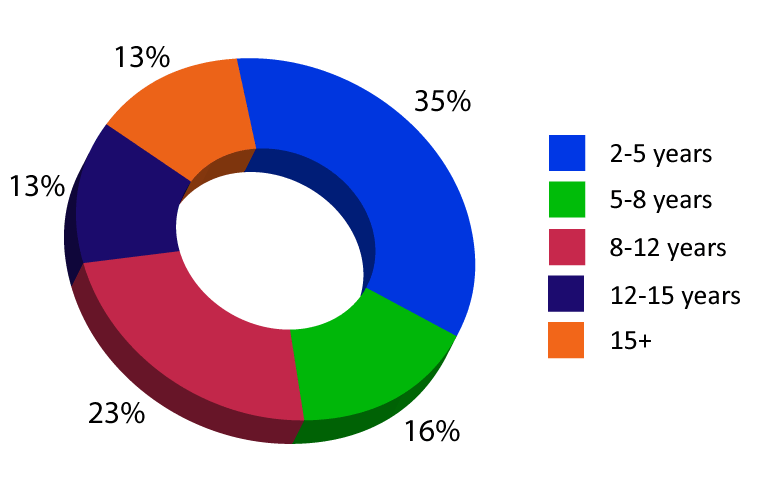
Batch Education Diversity
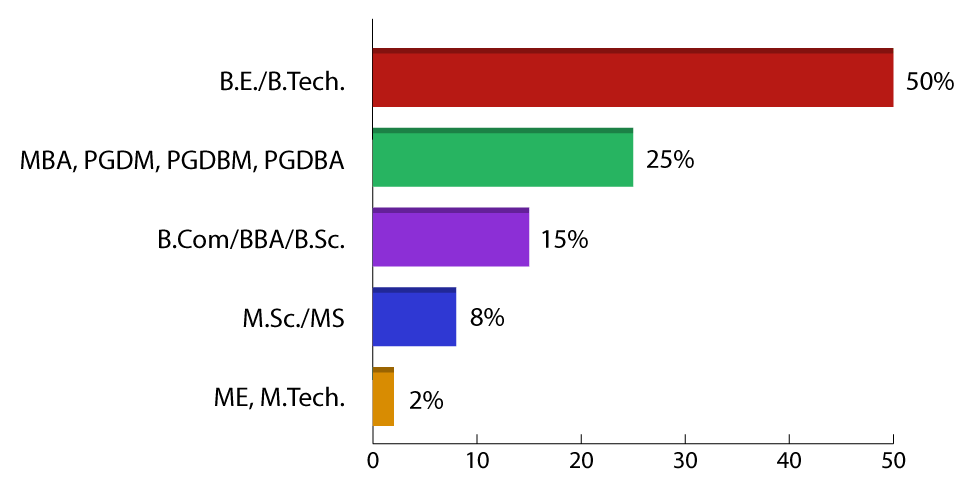
The PGP-Data Science learners come from some of the leading organizations.
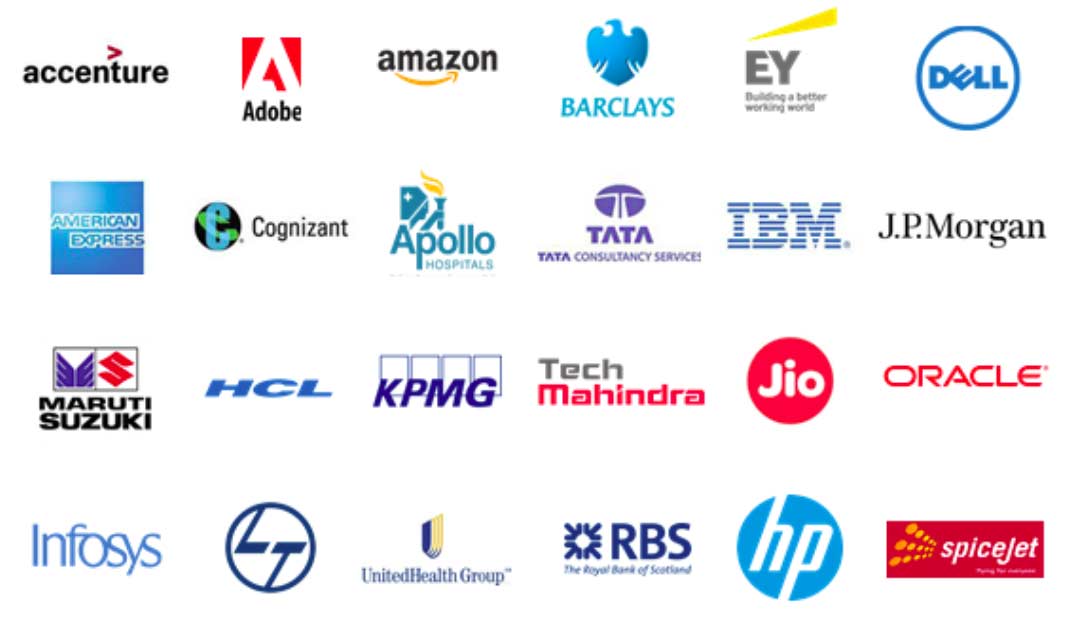
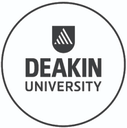


 Speak with our expert
Speak with our expert













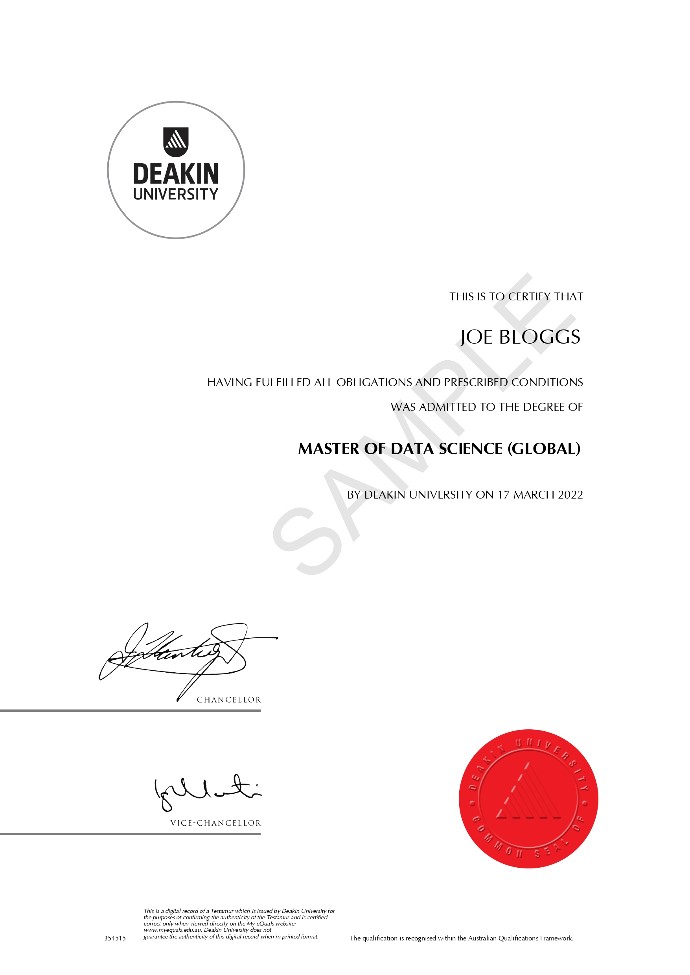
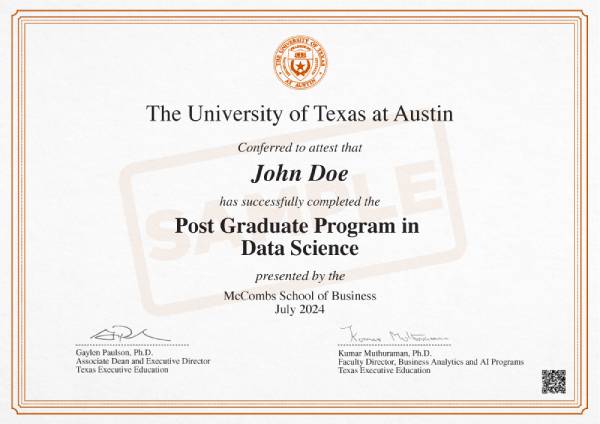
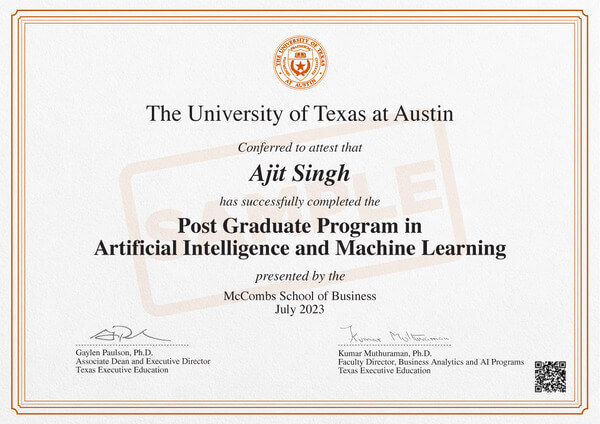
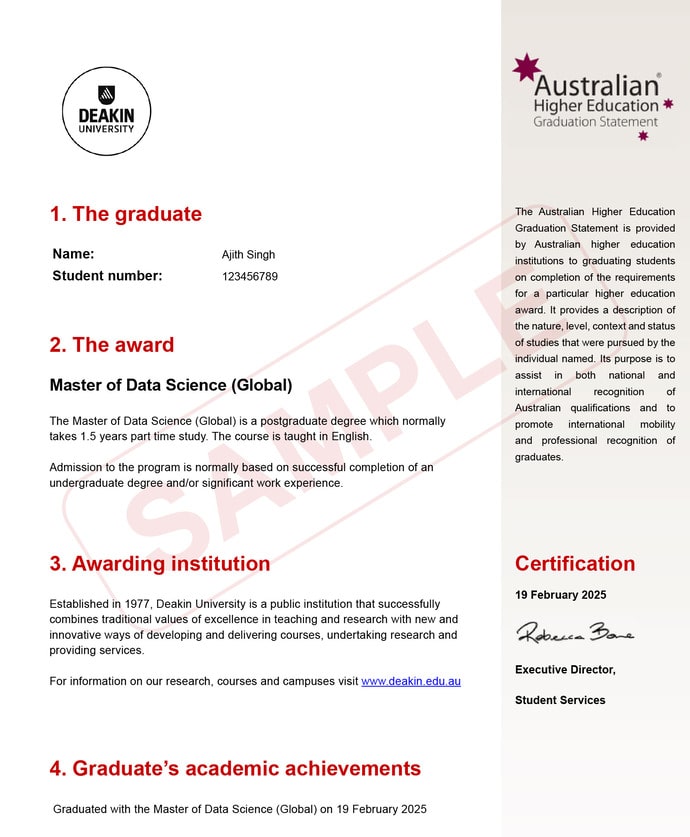

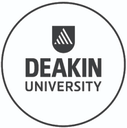



























.png)









